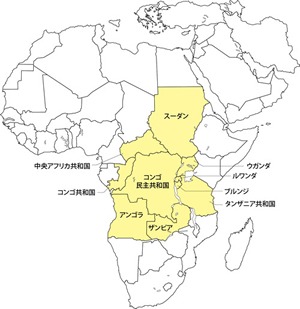Eliminating Conflict Material
Based on U.S. Financial Regulatory Reform Act (Dodd-Frank Act) as well as the 2017 edition of OECD guidelines (OECD Annex II Risk, CAHRAs), Nihon Superior Co., Ltd has conducted a survey in accordance with CMRT standards to acknowledge that the tin used for our products is conflict-free.
We procure our tin from companies certified by RMI and keep track of the updated information on the tin suppliers from time to time, using CMRT (common format revised and issued by RMI every year).
April 2023
Atsushi Tanaka, Manager
Nihon Superior Co., Ltd. Operations Dep.
Efforts to Eliminate Conflict Metals
Nihon Superior practices responsible procurement and will ensure that
customers can use our products without worry.
The US Dodd-Frank Wall Street Reform and Consumer Protection Act was revised on July 21, 2010. Article 1502 (Note 2) of the Act requires all companies listed in the US stock market to disclose information concerning their use of conflict metals (conflict minerals; Note 1) in annual reports filed to the Securities and Exchange Commission (SEC). The purpose of this provision is to eliminate the source of funding for the prolonged conflicts in the Democratic Republic of Congo and its neighboring countries.
Meanwhile, the EU established restrictions on conflict minerals in January 2021, requiring all companies importing conflict minerals in the form of ore or unprocessed metal into the EU to determine, and submit a report on, whether the minerals are associated with Organisation for Economic Co-operation and Development (OECD) Annex II Risk #4 in regions defined as conflict-affected and high-risk areas (CAHRAs #3). Therefore, surveys need to be conducted in this respect, too.
As a solder manufacturer, we make sure with our refiners that tins we use for producing solders are not originated from conflict minerals coming from CAHRAs. We will continue practicing responsible procurement to ensure that customers can use our products without worry.
Note 1 : Here, conflict metals (conflict minerals) refer to tantalum, tin, gold, and tungsten produced in the Democratic Republic of Congo and nine adjacent countries.
Note 2 : The detailed provisions of DFA Article 1502 were not yet established at the time of enactment of the act (July 21, 2010); the final provisions of Article 1502 were adopted by the SEC on August 22, 2012.
Reference material: Summary of the final SEC Rules on Conflict Minerals (by IPC)
The Democratic Republic of Congo and 9 adjoining countries
Contact details for inquiries : Nihon Superior Co., Ltd. Operations Dept.
e-Mail : info@nihonsuperior.co.jp
TEL : +81-(0)6-6843-7591

